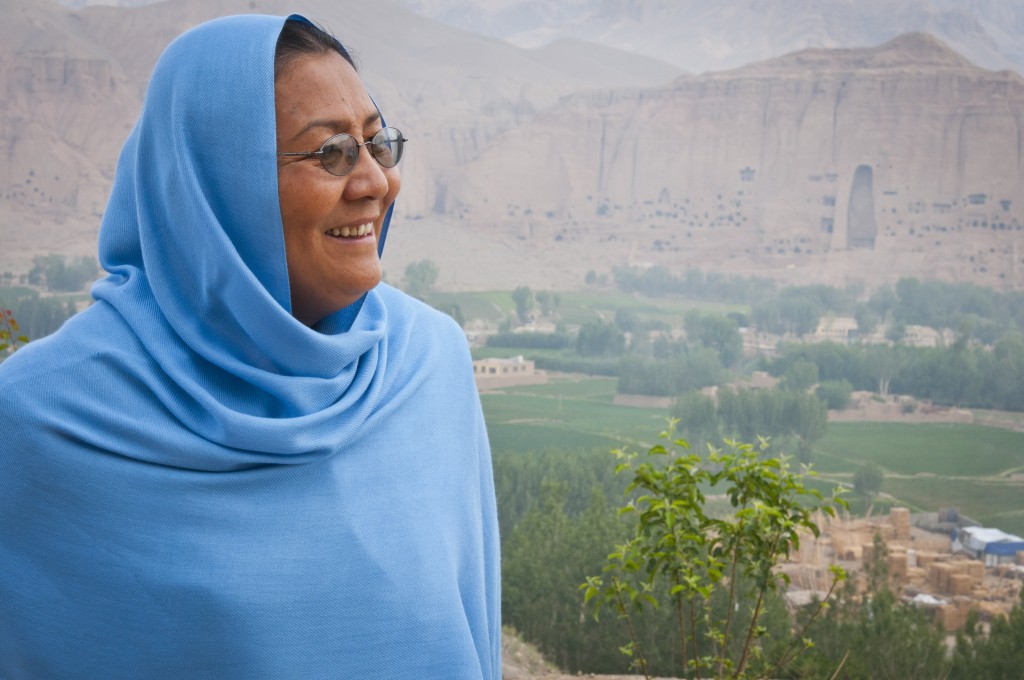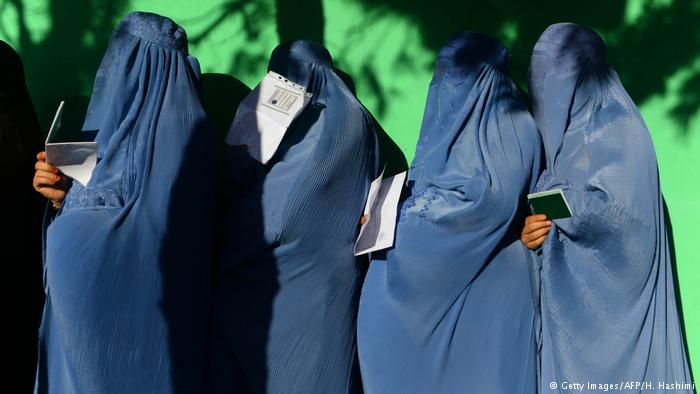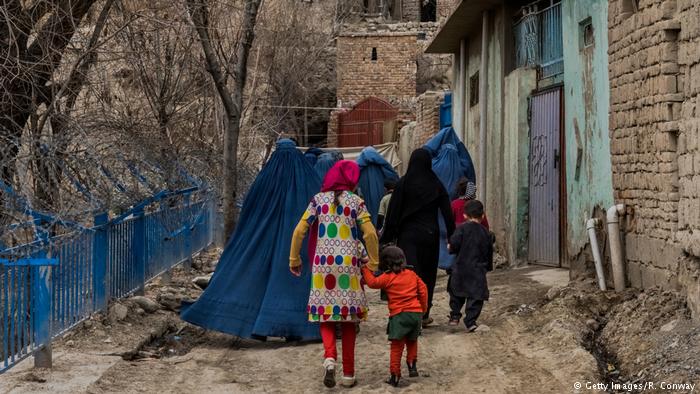“Women and girls should never give up fighting for their rights”
A few months ago we have published the story of Dr Habiba Sarabi, who became Afghanistan’s first female provincial governor, appointed by the then President Hamid Karzai in 2005. She governed Bamyan and used this platform to promote the rich cultural heritage of the province. In this one-on-one Dr Sarabi shares her extraordinary journey towards becoming one of the foremost female voices in the Afghan politics right now.
Q: What were some of the biggest obstacles to reaching your professional goals?
A: While I was still studying, poverty was the biggest obstacle preventing me from receiving my higher education. Similarly, lack of institutions that offered advanced degrees [Master’s or above] was another major challenge. Additionally, lack of interest and motivation from my family, in particular from my father, were some of the other factors that prevented me from realising my professional ambitions. During the 1970s and 1980s, when I was a student, our peoples’ perceptions were not that enlightened to encourage their daughters to pursue higher studies.
Today, although we are in a democratic decade, people’s opinions still largely differ when it comes to my work. Fortunately, the majority praises and commends me for what I have been able to achieve, while there are those, who, in order to undermine it, overlook all that I have done and instead utter baseless statements such as women should have nothing to do with politics, and so on. They would much rather have women always busy doing the housework.
Q: Tell us a bit about your childhood, your ambitions and who inspired or influenced you to be who you are today.
A: I was born in a middle-class family that was considered relatively liberal at that time; a broader look at our family tree shows that my ancestors come from a very liberal environment. Describing my smaller immediate family that comprised my father, mother, and brothers, I would say that my father was a very aggressive man who was biased against women. When people delivered the news of my birth to my father, congratulating him, he seemed to have a sorrowful face, and he didn’t even bother to look at me because I was a girl.
My mother had great interest in my education. She said that if our daughter goes to school, she would at least become literate. Unable to read herself, she asked me to read her the letters that she occasionally received from her brothers.
My father also committed acts of violence against my mother, who was his second wife. She continued suffering from violence until she passed away. The violence committed against her impacted my life, too. However, I was very much influenced from the life of my mother, who I believe turned me into a fighter and a women’s rights activist.
Q: Has being a woman affected your road to where you are today?
A: Yes, it definitely has, since women’s participation has been very low in the Afghan government. During the years of war, a lot of Afghan talent escaped the country. The number of talented women, which was already low, was substantially reduced as a result of this vacuum. The number of educated and experienced women immediately after 2001 was very low in the country. Being a woman, and coming from a minority group were the two factors that helped me to latch on to the opportunity that was created and get into the reserved seat in the cabinet as per the quota.
Q: How do you cope with being a woman in your area of work?
A: Afghan societies are very traditional, hence I respect and leverage those elements of Afghan tradition that don’t deprive women of their rights and don’t affect them negatively. The other point that is noteworthy is the fact that I mostly respect people and their different cultural norms and I try to back my efforts with those traditions of our societies that are favourable for women. For instance, I have established good relationships with the Imams, and religious and tribal leaders, using religious texts to substantiate and justify my work for women.
Q: What is your main message for the younger generation, or women and girls who may want to follow your path?
A: My message for them would be to be self-confident. They should work on empowering and boosting their confidence, building their personalities, having respect for their culture, and making the optimal use of the opportunities they get. Most importantly, they should work to earn people’s confidence in them.
Never give up fighting for your rights. Show persistence and perseverance in your work. Support each other so that you can reach the pinnacle of success.
(This article is part of U.N. Women’s Empowering Women — Empowering Humanity: Picture It! campaign in the lead-up to Beijing+20.)
Editor: Marjory Linardy
WTO RECOMMENDS
Afghanistan: In The Midst Of War, A Women’s Rights Warrior
Born in the mid-50s in Mazar-i-Sharif, a cultural and religious site in Afghanistan with famous shrines that get thousands of visitors annually, Dr Habiba Sarabi’s childhood was similar to that of many girls in her country. She grew up in a lower middle class household where money was tight, and her father preferred her brothers. She had to work twice as hard to show that she was capable of doing as much as them, if not more. (From June 19, 2015)
A young woman’s revolution to bring clean water and bio-toilets in rural India
Sanchaita Gajapati Raju, a lawyer and media professional, chose to give up her life of luxury in 2011 when she set up her NGO, Social Awareness Newer Alternatives (SANA). The organization works tirelessly to provide access to clean water and sanitation facilities in over 20 villages in India. Roma Rajpal Weiß talked to the inspiring young woman about her journey. (From April 30, 2015)
Lives On The Edge: Clearing Landmine
Till a year ago, she could not have ever imagined that she would be working in a minefield every day, strapping on 25 kilograms of equipment to search for the very explosives that used to give her nightmares as a child. Today, though she can identify 10 different types of mines just by sight and, over time, the minefield has become familiar territory. (From July 24, 2015)







